Applied Health Sciences, Medical Laboratory Concentration
The Applied Health Sciences program with a concentration in Medical Laboratory Science, at UW-Parkside, will prepare you for entry-level laboratory positions and a future in a constantly growing area of health care. Now is a great time to start your career in the clinical laboratory profession, because there is a nationwide shortage of clinical laboratory scientists.
Laboratory medicine is a vital component of the healthcare system. Medical Laboratory Scientists provide essential information for the prevention, diagnosis, treatment and management of health and disease. The collaboration between Medical Laboratory Scientists, physicians, nurses and other healthcare professionals is necessary to provide cost-effective objective information used in clinical decision making. In their professional careers, Parkside graduates play key roles at leading employers such as: Abbott Laboratories, SC Johnson, and Froedtert Hospital.
PROGRAM HIGHLIGHTS
- Preparation to sit for the ASCP-BOC exam
- Unique, hands-on clinical experience in a hospital laboratory setting
- Classes offered to accommodate work schedules
- Affordable tuition
In this program you will study coursework in chemistry, biology, microbiology math and statistics to gain multi-faceted skills in the medical laboratory sciences.
YOUR COURSES INCLUDE
- Genetics
- Diagnostic Molecular Biology
- Clinical Immunology and Immunohematology
- Hematology and Hemostasis
- Cellular Morphology
- Laboratory Operations
- Clinical Practicum
CAREER DESCRIPTION
Medical Laboratory Scientists are responsible for performing tests on patient samples and providing results to clinical staff so that diagnoses and treatment plans can be formed. Learn to conduct tests using fundamental knowledge in the disciplines of
- Clinical Chemistry
- Hematology and Hemostasis
- Immunology
- Immunohematology
- Microbiology
- Molecular diagnostics
Our curriculum prepares students to understand the theory and practice of performing essential tests in these different areas.
PROGRAM OUTCOMES
Graduates of the University of Wisconsin-Parkside Medical Laboratory Science (MLS) program
| 2021-2022 | 2022-2023 | 2023-2024 | |
| ASCP-BOC Pass Rate | 57% | 50% | 57% |
| Graduation Rate | 100% | 100% | 100% |
| Placement Rate | 100% | 100% | 100% |
The Medical Laboratory Sciences program at the University of Wisconsin-Parkside is committed to providing students with a high-quality education that prepares them for successful careers in the field. Our program's recent outcomes demonstrate our dedication to this mission. Despite the challenges posed by the COVID-19 pandemic, our students achieved a 57% pass rate on the ASCP-BOC exam in both 2021-22 and 2023-24 graduating classes and 50% for the 2022-23 class. We remain committed to supporting our students as they prepare for the exam. Additionally, our program boasts a 100% graduation rate for the past three years, and we are confident in our student's continued high rates of timely graduation. Finally, our post-graduation job placement rate for graduates has been 100% for the past three years, indicating that our graduates are well-prepared to succeed in their careers. Through our rigorous curriculum, experienced faculty, and commitment to student success, we are confident that the Medical Laboratory Sciences program at UW-Parkside will continue to produce exceptional graduates who contribute to the healthcare industry.
Revised 6/1/2025
ACCREDITATION
The College of Natural and Health Sciences Medical Laboratory Science program is accredited by the National Accrediting Agency for Clinical Laboratory Sciences (NAACLS).
5600 North River Road, Suite 720
Rosemont, IL 60018-5119
Phone: 773-714-8880 | Fax: 773-714-8886
info@naacls.org | naacls.org
WHO SHOULD APPLY?
Students come to the clinical laboratory science program from many different backgrounds and educational experiences: Some start college knowing that they want to be in the MLS program. Others discover the program after taking science courses and thinking about possible majors in science. No matter when students learn about the MLS program, they all have similar reasons for applying:
- They like science courses – especially the hands-on aspects of laboratory courses
- They want to use their talents and interest in science to help people
- They want a marketable degree upon graduation
- They want a degree that will give them many options for the future
- If this describes you, apply to the MLS program and take the first step toward an exciting future in clinical laboratory science.
Students typically enter the Medical Laboratory Science concentration of the Applied Health Science Program after completing general education requirements and prerequisite courses. Please note that successful completion of the prerequisite courses listed under the major does not guarantee admission to the program. Students who already have a baccalaureate degree and have the MLS prerequisite courses may apply for admission to the program and request a second baccalaureate degree from University of Wisconsin-Parkside.
Courses
COURSES IN THE MLS CONCENTRATION | 50 credits
AHS 300 | Introduction to Medical Laboratory Sciences | 3 credits
AHS 310 | Clinical Microbiology I | 2 credits
AHS 311 | Clinical Microbiology II | 3 credits
AHS 320 | Clinical Immunology I | 3 credits
AHS 321 | Clinical Immunology II | 2 credits
AHS 335 | CHEM 335 | Clinical Chemistry I | 3 credits
AHS 336 | CHEM 336 | Clinical Chemistry II | 3 credits
AHS 340 | Hematology and Hemostasis I | 3 credits
AHS 341 | Hematology and Hemostasis II | 2 credits
AHS 350 | Diagnostic Molecular Biology | 3 credits
AHS 400 | Immunohematology I | 2 credits
AHS 401 | Immunohematology II* | 2 credits
AHS 405 | Cellular Morphology* | 2 credits
AHS 406 | Clinical Fluid Analysis* | 2 credits
AHS 410 | Mycology, Parasitology and Virology | 3 credits
AHS 420 | Laboratory Operations | 2 credits
AHS 450 | Clinical Correlations/Board of Review Test Preparation | 2 credit
AHS 495 | Clinical Practicum I | 2 credits
AHS 496 | Clinical Practicum II | 2 credits
BIOS 260 | Genetics | 4 credits
*These 3 courses (6 credits) will satisfy the AHS 494 – Internship/Fieldwork (6 credits) requirement within the AHS major.
Real Opportunities
One of the unique aspects of the AHS major is its strong emphasis on hands-on, clinical experiences for its students. Each student within the major is required to obtain a minimum of three hundred hours of patient contact experience within their chosen concentration area. This exposure to the actual "job" not only is a requirement for most professional programs, but, more importantly, helps students obtain a deeper understanding of the professional careers they are considering.
ASCLS Code of Ethics
The Code of Ethics of the American Society for Clinical Laboratory Science sets forth the principles and standards by which Medical Laboratory Professionals and students admitted to professional education programs practice their profession.
I. DUTY TO THE PATIENT
Medical Laboratory Professionals' primary duty is to the patient, placing the welfare of the patient above their own needs and desires and ensuring that each patient receives the highest quality of care according to current standards of practice. High quality laboratory services are safe, effective, efficient, timely, equitable, and patient-centered. Medical Laboratory Professionals work with all patients and all patient samples without regard to disease state, ethnicity, race, religion, or sexual orientation. Medical Laboratory Professionals prevent and avoid conflicts of interest that undermine the best interests of patients.
Medical Laboratory Professionals are accountable for the quality and integrity of the laboratory services they provide. This obligation includes maintaining the highest level of individual competence as patient needs change, yet practicing within the limits of their level of practice. Medical Laboratory Professionals exercise sound judgment in all aspects of laboratory services they provide. Furthermore, Medical Laboratory Professionals safeguard patients from others' incompetent or illegal practice through identification and appropriate reporting of instances where the integrity and high quality of laboratory services have been breached.
Medical Laboratory Professionals maintain strict confidentiality of patient information and test results. They safeguard the dignity and privacy of patients and provide accurate information to patients and other health care professionals. Medical Laboratory Professionals respect patients' rights to make decisions regarding their own medical care.
II. DUTY TO COLLEAGUES AND THE PROFESSION
Medical Laboratory Professionals uphold the dignity and respect of the profession and maintain a reputation of honesty, integrity, competence, and reliability. Medical Laboratory Professionals contribute to the advancement of the profession by improving and disseminating the body of knowledge, adopting scientific advances that benefit the patient, maintaining high standards of practice and education, and seeking fair socioeconomic working conditions for members of the profession.
Medical Laboratory Professionals accept the responsibility to establish the qualifications for entry to the profession, to implement those qualifications through participation in licensing and certification programs, to uphold those qualifications in hiring practices, and to recruit and educate students in accredited programs to achieve those qualifications.
Medical Laboratory Professionals establish cooperative, honest, and respectful working relationships within the clinical laboratory and with all members of the healthcare team with the primary objective of ensuring a high standard of care for the patients they serve.
III. DUTY TO SOCIETY
As practitioners of an autonomous profession, Medical Laboratory Professionals have the responsibility to contribute from their sphere of professional competence to the general well being of society. Medical Laboratory Professionals serve as patient advocates. They apply their expertise to improve patient healthcare outcomes by eliminating barriers to access to laboratory services and promoting equitable distribution of healthcare resources.
Medical Laboratory Professionals comply with relevant laws and regulations pertaining to the practice of Clinical Laboratory Science and actively seek, to change those laws and regulations that do not meet the high standards of care and practice.
PLEDGE TO THE PROFESSION
- As a Medical Laboratory Professional, I pledge to uphold my duty to Patients, the Profession and Society by:
- Placing patients’ welfare above my own needs and desires.
- Ensuring that each patient receives care that is safe, effective, efficient, timely, equitable and patient-centered.
- Maintaining the dignity and respect for my profession.
- Promoting the advancement of my profession.
- Ensuring collegial relationships within the clinical laboratory and with other patient care providers.
- Improving access to laboratory services.
- Promoting equitable distribution of healthcare resources.
- Complying with laws and regulations and protecting patients from others' incompetent or illegal practice
- Changing conditions where necessary to advance the best interests of patients.
Certification and Licensure
Certification and Licensure
Certification
Certification is a voluntary process; however, most employers prefer to hire certified practitioners. After graduation, students are eligible to sit for exams to receive national certification from the ASCP Board of Certification (ASCP-BOC). We urge all graduates of our programs to seek certification, as it is an investment in your future in the profession. We recommend scheduling your exam soon after graduation (give yourself a little time to review!), while all that you have learned is fresh in your mind. Additional application information needed for certification examinations will be provided to students prior to completion of the program.
Licensure
Licensure is granted by individual states. Currently, Wisconsin and Illinois lack a licensing process for laboratory personnel.
The following states/territories do currently require licensure for clinical laboratory personnel: California, Florida, Georgia, Hawaii, Louisiana, Montana, Nevada, New York, North Dakota, Puerto Rico, Tennessee, and West Virginia. Requirements vary by location.
Students who are thinking of working in a state that has licensure for clinical laboratory personnel should contact that state licensing board as early as possible for information on the state’s requirements. Completion of the University of Wisconsin - Parkside MLS program does not guarantee that a graduate will meet all state licensure requirements.
More information on state licensure and contact information can be found on the ASCLS website.
Required Documentation
This list describes in general the documentation that is required of all students in the Division of Clinical Laboratory Science. Students will receive instructions for documenting completion of the requirements, including deadlines for each requirement.
- Required immunizations, including the requirements for Health Science Students.
- Note that the flu shot is required when students are in clinical rotations during flu season (4th year MLS students).
- Annual tuberculosis screening.
- Annual review of MLS Policies and Procedures.
- Annual safety training.
- University of Wisconsin – Parkside’s online HIPAA Training, renewed annually.
- Criminal background check prior to clinical placements, renewed annually.
- Drug screen prior to clinical placements.
- Major medical insurance coverage in force during clinical rotations.
- MLS students who do not submit a waiver with proof of personal coverage will be automatically enrolled in the mandatory student hard waiver plan.
- Students who are (or may be) assigned to a rotation at institutions other than Froedtert South Hospital may be required to complete additional training and documentation. Also, students completing a rotation at other sites may also have to fulfill additional requirements (safety orientations, training modules, etc.). The requirements of our clinical sites are subject to change at any time. You will be informed of these as we are made aware of them.
PROGRAM CONTACT INFO
Dr. John Bennett | 262-595-2410 | bennettj@uwp.edu



